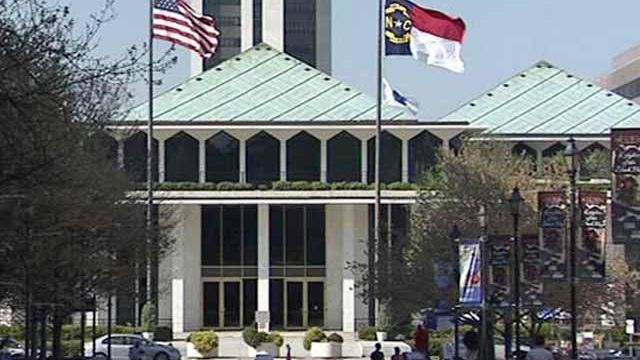Tax plan heading to McCrory
The General Assembly gave final approval Wednesday to changes in North Carolina's tax structure that backers call historic in nature, and the proposal now heads to Gov. Pat McCrory.
Posted — UpdatedThe package of changes, which are the first major adjustments to the state tax code in about 40 years, calls for reducing both personal and corporate income taxes and the elimination of the estate tax.
"This is a step toward getting our fiscal house in order," said Rep. David Lewis, R-Harnett, promising that lawmakers would continue to pursue changes in the future.
House Democrats put up less of a fight than Tuesday, when Republicans cut off debate after less than 30 minutes, but they still argued that the plan is more a tax cut for wealthy people and corporations than tax reform.
"I don't think one party can do tax reform," said Rep. Ken Goodman, D-Richmond.
Goodman said small businesses would see their taxes increase under the plan because a $50,000 income tax exemption would be eliminated.
Sen. Gene McLaurin, D-Richmond, raised the same concerns during the brief Senate debate, saying 60 percent of small businesses statewide will end up paying an average of $1,150 more in taxes because of the lost exemption.
Sen. Bob Rucho, R-Mecklenburg, said he doubts McLaurin's figures are accurate, saying people need to look at the entire package to determine tax liability.
Rep. Rick Glazier, D-Cumberland, called the proposal the worst possible scenario for the state by lowering tax revenue but not encouraging consumer spending or business investment.
"This is a tax cut and a tax shift but not major tax reform," Glazier said, adding that the plan could jeopardize North Carolina's bond ratings in the future.
Still, Lewis responded to Democratic claims that the legislation isn't revenue neutral by noting that state revenue is projected to rise under the revised tax structure by $3.2 billion, or about 16 percent, over the next five years.
"Letting everybody keep more money in their pocket creates economic growth and creates opportunities for people to better themselves, to take care of their families, to meet their obligations," he said. "We believe it is a fair and equitable way to finance the needs of this state."
The plan replaces the three-tier personal income tax system with a flat tax of 5.8 percent in 2014, which drops to 5.75 percent in subsequent years. Standard deductions increase to $7,500 for single filers, $12,000 for heads of households and $15,000 for married couples.
The corporate tax rate would be cut from the current 6.9 percent to 5 percent by 2015. If North Carolina meets revenue targets in the coming years, officials said, the corporate rate will drop even further, to 4 percent in 2016 and 3 percent in 2017.
The plan also includes the following provisions:
- Deductions for mortgage interest on first homes, something that had been a point of contention between the House and the Senate, will be capped at $20,000.
- Charitable contributions will remain fully deductible for itemizers.
- The child tax credit will continue and will increase for those making less than $40,000.
- Social Security income will remain exempt from state taxes.
- North Carolina's gas tax will be capped until June 30, 2015.
- Most nonprofits will be able to claim refunds of what they pay in state sales taxes. The compromise plan puts a cap of $45 million on the amount of refund claimed in any one year, which should allow all but the biggest nonprofit hospitals to reclaim all of the money they pay in sales taxes.
- The estate tax is repealed.
- A deduction on retirement income is eliminated.
- The state's franchise tax, a property tax on businesses, goes unchanged but will be studied for reform in future years.
- Starting in 2014, the sales tax holidays for back-to-school and Energy Star products are eliminated.
Backers say the package will leave North Carolina with the 17th-lowest tax burden in the U.S., compared with the seventh-highest burden the state now has.
Commerce Secretary Sharon Decker told some lawmakers that executives of three companies called her late Tuesday to express interest in moving to North Carolina because of the tax plan, said Sen. Tom Apodaca, R-Henderson.
"This is what we were sent here to do," said Rep. Bert Jones, R-Rockingham.
Related Topics
Copyright 2024 by Capitol Broadcasting Company. All rights reserved. This material may not be published, broadcast, rewritten or redistributed.






